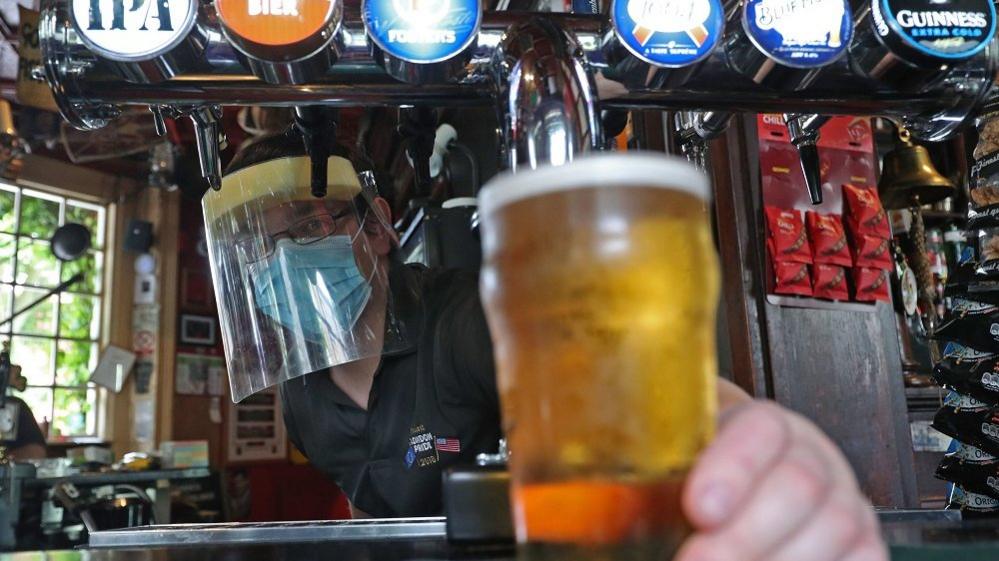Coronavirus: NI jobs outlook 'heading back to 1980s'
- Published
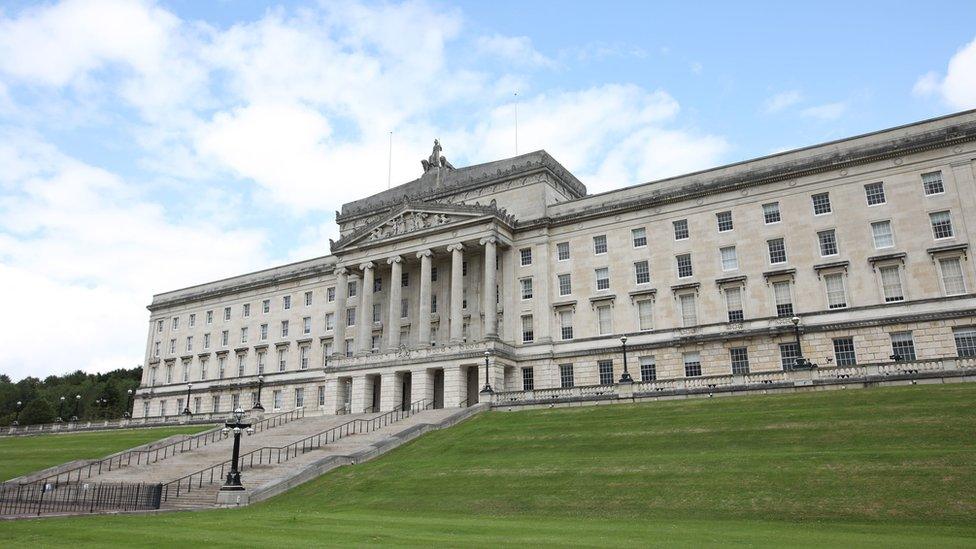
Stormont's Department for the Economy is warning that the labour market is rapidly heading back to the 1980s
Northern Ireland in the 1980s could be a grim place.
Sectarian murders were still an every day horror and a political solution to the Troubles seemed almost impossible.
The jobs market was in terrible shape, too.
Between the end of 1982 and the end of 1989, there were never less than 100,000 people claiming unemployment benefits.
Before the pandemic the unemployment claimant count this year was well below 30,000.
But now Stormont's Department for the Economy is warning that the labour market is rapidly heading back to the 1980s.
This week, the department published a detailed analysis of how the pandemic has damaged the economy. , external
It noted that the claimant count has more than doubled in two months with more job losses to come.
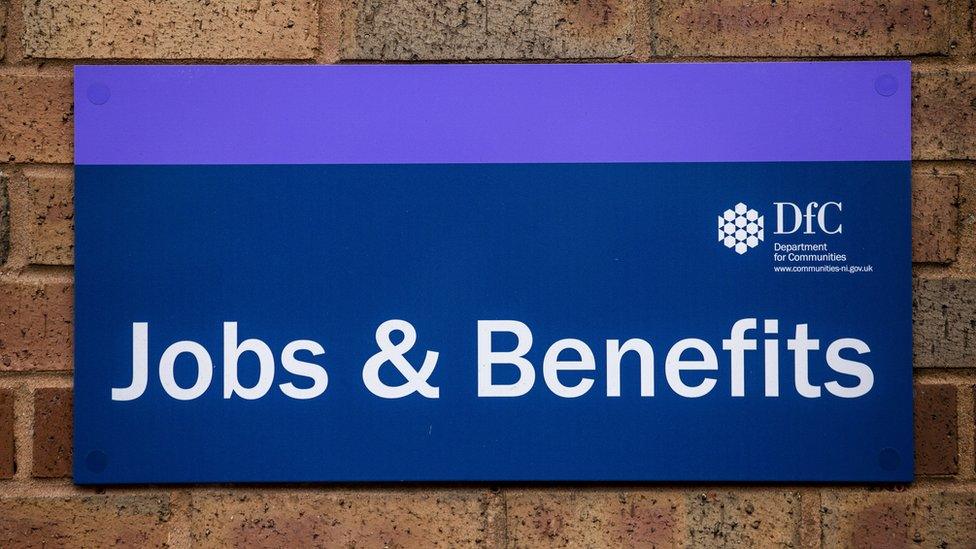
Changes to the benefits system since the 1980s makes it harder to get a fully comparable claimant count
"Given that the claimant count currently stands at 65,151 in Northern Ireland, this scenario of job losses, and upcoming outflow of education leavers, would mean that the claimant count could plausibly exceed 100,000 before the end of 2020 or shortly afterwards.
"By way of context, anything above 106,000 has not been witnessed since the 1980s."
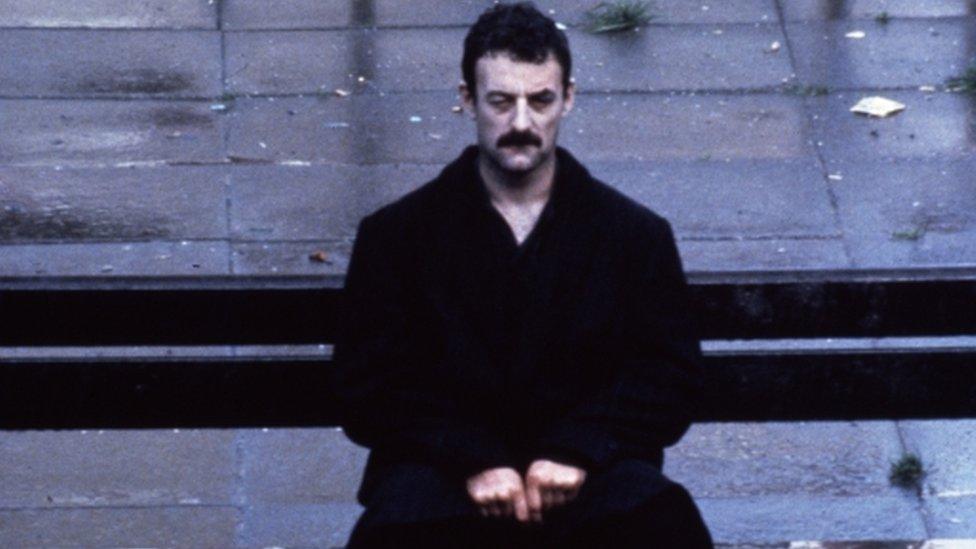
Yosser Hughes (portrayed by Bernard Hill) in the BBC drama series Boys from the Blackstuff which depicted the despair of unemployment in the 1980s
There is a caveat, that changes to the benefits system since the 1980s makes it harder to get a fully comparable claimant count.
Unlike the "dole" in the 1980s, Universal Credit is paid to both those out of work and those employed on low pay, though statisticians adjust for this difference to make as close a comparison as possible.
And there is no doubt the claimant count is steadily ticking up.
This week, about 50 local workers lost their jobs as the Harvey's furniture chain collapsed into administration.
One of those who lost his job was William Bell, who had worked at the firm for 12 years.
'Devastated'
Along with his colleagues, he found out by recorded message at lunchtime on Tuesday.

"We thought there should have been some type of consultation with us. There was nothing," he said.
"All we got was the recorded message which, I think, is absolutely disgraceful.
"There has been no respect shown, they have treated us like pure dirt."
His colleague, Raymond Lowry, had been with the firm for 17 years.
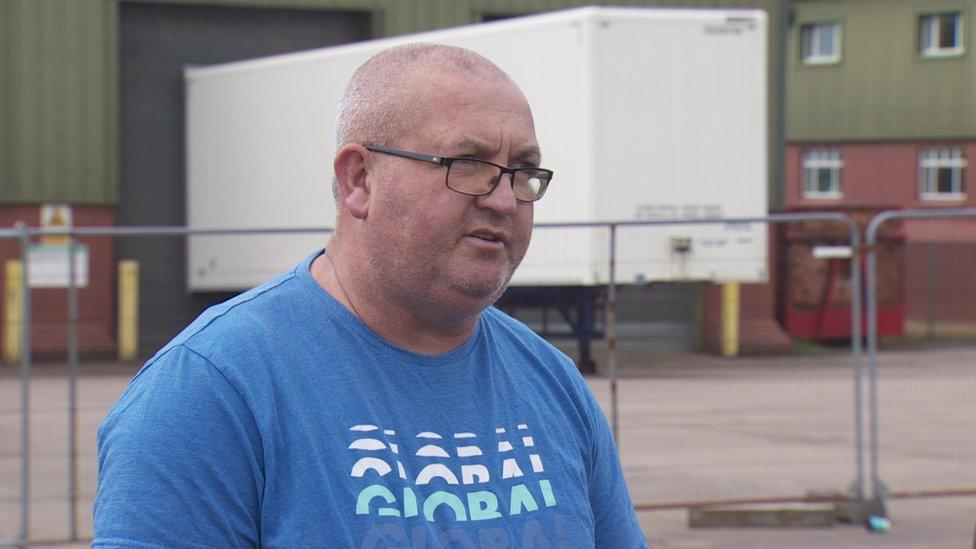
William Bell, lost his job after working at Harvey's for 12 years
"We came back to work thinking our jobs were safe," he said.
"Just to get a phone call and you're redundant, it's a disgrace.
"Everybody's devastated."
Joint administrator Zelf Hussain of PwC said that it was "regrettably necessary" to make redundancies, adding that the businesses would continue to trade in administration while all options were explored.
"We will make every effort to help those affected at this difficult time by liaising with the Redundancy Payments Service and Job Centre Plus," he said.
However, the week ended with some better economic news in Northern Ireland as restaurants, pubs and hotels were able to reopen.

Hotels and bars in Northern Ireland re-opened on Friday
That follows the reopening of retail, with leisure businesses still to come.
It is certain this will mean that short-term economic output figures will move into positive territory as those sectors bounce off rock bottom.
But the Department for the Economy warns that a rapid jobs recovery is not so certain.
It points to the evidence from previous recessions where job losses continued for a time, even as output stabilised.
There is also the tendency for firms to be risk averse about rehiring staff leading to a slow recovery in the jobs market.
And the department also cautioned that things could get much worse.
"An additional risk is a more extreme scenario, of a chain reaction of wave after wave of job losses, with a potential further slump in demand and consumer confidence in the form of a negative feedback loop.
"This is perhaps less likely than the first two risks, but still a possibility."
- Published17 June 2020
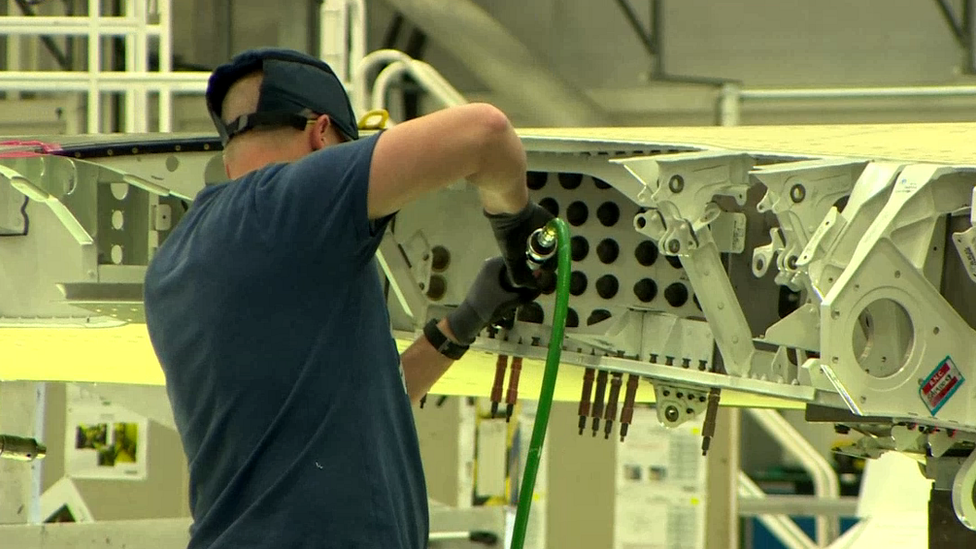
- Published3 July 2020
